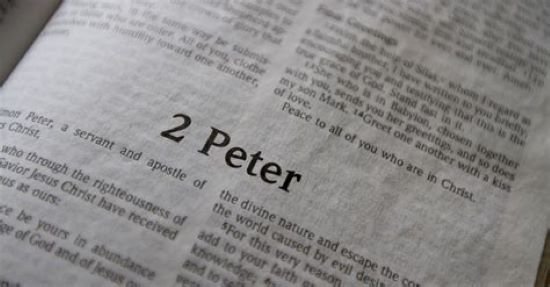A Sense of Urgency
Knowing that his life was likely drawing to a close, the Apostle Peter arranged for the composition of the brief epistle we know as 2 Peter. Part sermon, part letter, there is a profound sense of urgency in Peter’s second letter. In it, the apostle makes three key points. First, Peter urges that Christians, who are already recipients of God’s grace, manifest those moral virtues which reflect their faith in Christ. These virtues include knowledge, self control, steadfastness, godliness, brotherly affection, and love. Second, Peter warns us that false teachers and false prophets will secretly introduce destructive heresies into the churches, and that Christians ought constantly to be on guard for such disruptive individuals. These men live to indulge the flesh. Although they attract large numbers of followers, God will punish them harshly while rescuing his people from their clutches, just as he did with Noah and Lot. Third, even though the false teachers deny that Jesus will return a second time, it is certain that our Lord will come again to purge the present heaven and earth, removing every trace of human sin, and then creating a new heaven and earth–the home of righteousness. While we long for that glorious day of Christ’s return, Peter exhorts us to wait patiently during this age of salvation, all the while growing in the grace and knowledge of our Lord and Savior, Jesus Christ.
We now conclude our time in 2 Peter. Although too often overlooked, 2 Peter is a remarkable letter. It is packed with important apostolic teaching, and reflects Peter’s righteous anger toward those who speak false words and utter false prophecies so as to lead the people of God astray. Peter opens his letter by reminding us of God’s saving grace in Jesus Christ, which not only saves us from the guilt and power of sin, but at the same time empowers us to live Godly lives. As the false teachers and prophets seek to indulge the flesh, Christians should seek to produce those Godly virtues enumerated by Peter in the first chapter of this epistle, all the while waiting patiently for the very thing the false teachers say will not come to pass–the second coming of Jesus, the final judgment, and the creation of a new heaven and earth, our eternal home.
Read More

